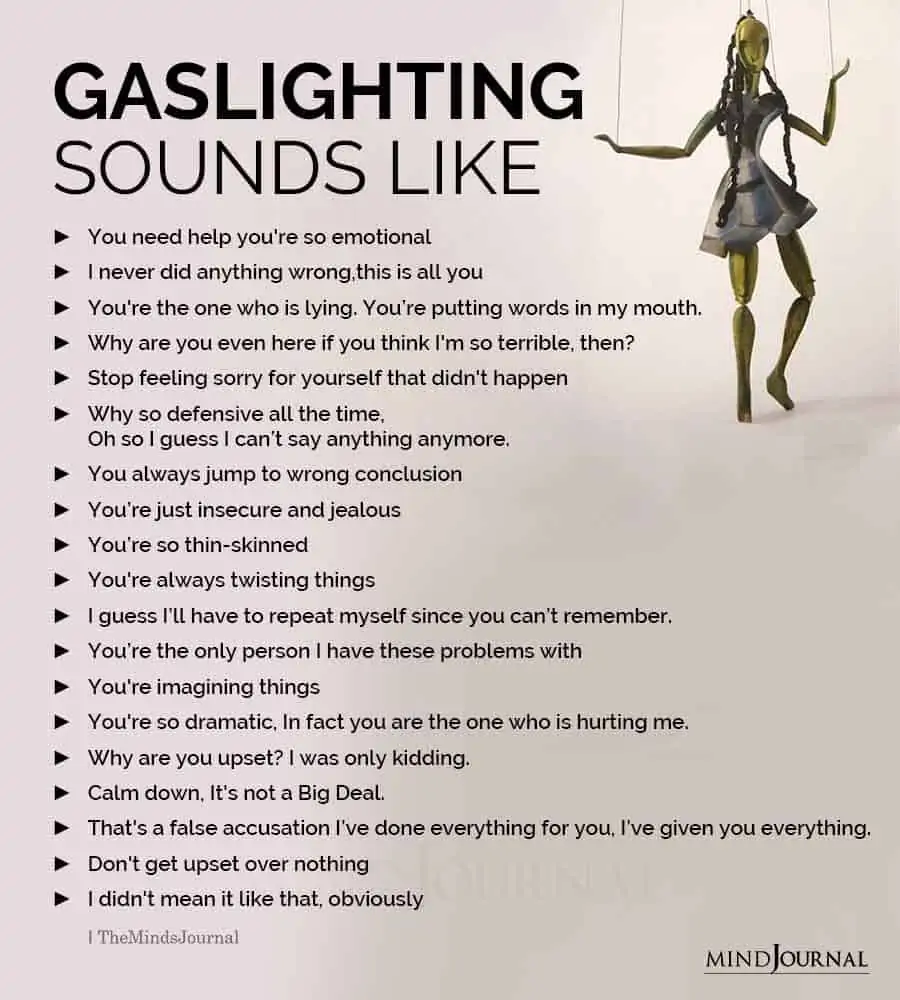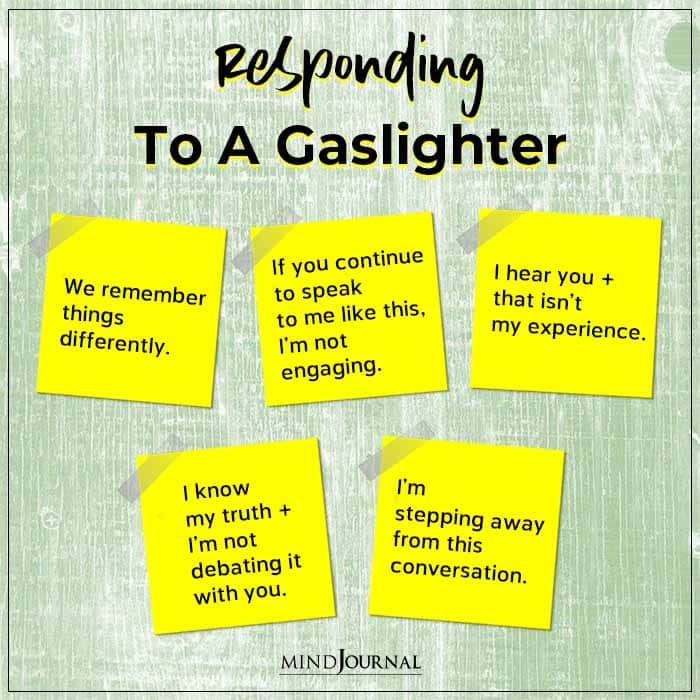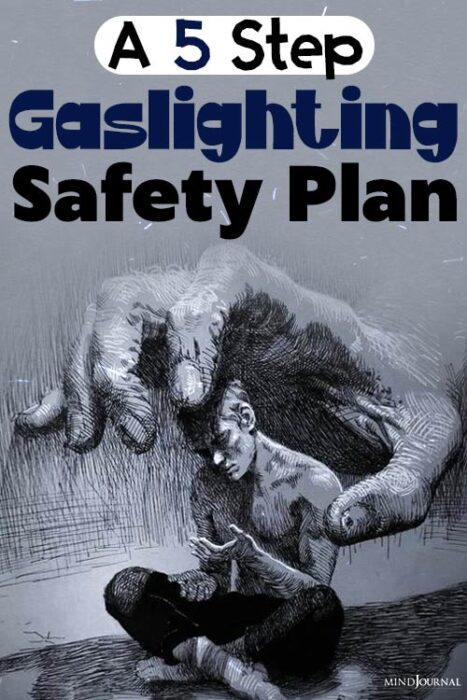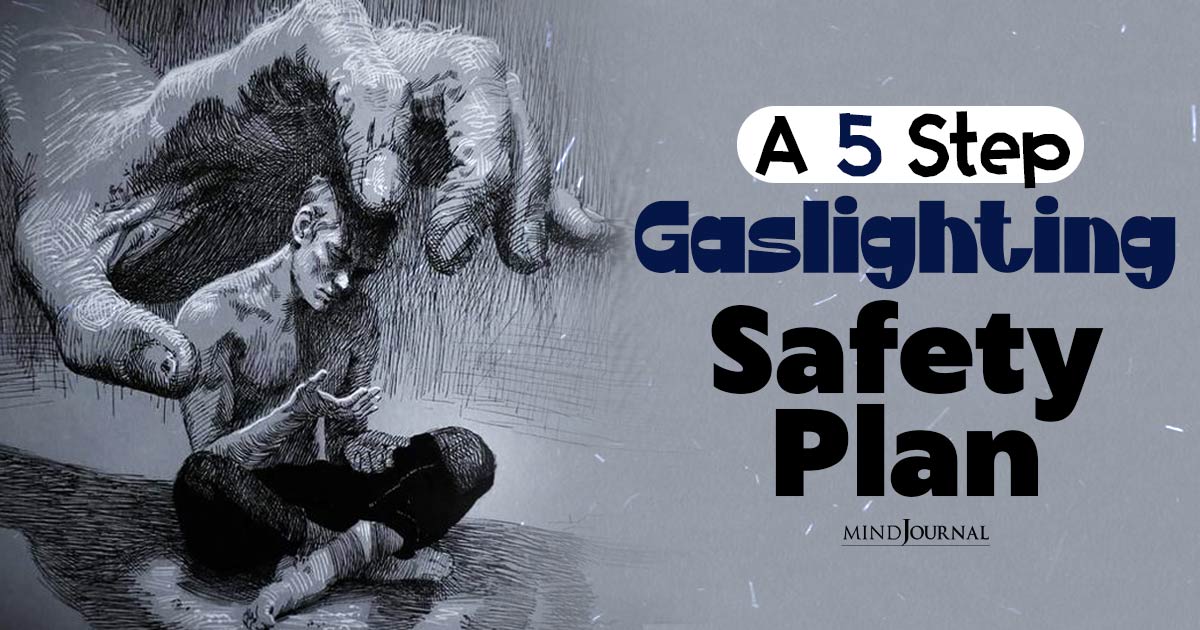Have you ever been on the other side of gaslighting? If yes, then you have come to the right place! This post is going to talk about how to deal with gaslighting, how to handle gaslighters, and how to protect yourself from gaslighting.
KEY POINTS
- To protect oneself, it is important to understand what gaslighting is and what it is not.
- Gaslighting can sabotage a person’s self-esteem and cause them to lose faith in their sense of reality.
- Gathering evidence, finding support, and engaging in self-care are crucial when dealing with a gaslighter.
If you have ever experienced gaslighting, you know that it can be difficult to detect because the very nature of gaslighting is to cause confusion. Uncertainty about what gaslighting is and what it is not, as well as the best way to handle it, are common questions.
Each instance of gaslighting differs, and it may not always be possible to follow every step. Rest assured that anything you do is better than doing nothing, as the most effective way to stop gaslighting is with a clear and decisive response to it.
Related: Identifying Gaslighting Tactics: Types Of Gaslighting, Phases, And Common Phrases Of Gaslighting
What Gaslighting Is and Is Not
Gaslighting is a form of emotional manipulation intended to break down a person’s trust in themselves, causing self-doubt and confusion about personal opinions, self-awareness, and reality. Gaslighting can occur in any relationship (romantic, family, friends, co-workers) or within a group or organization (work, school, government, medicine) in which one person or entity has potential power over another individual or group.
Gaslighting is not always obvious and often manifests in ways that are covert and difficult to detect. Understanding the effects and the typical dynamics involved can help you remain connected with your sense of self-worth, making it less likely someone can use gaslighting as a form of manipulation or emotional abuse against you. Gaslighting is most effective when it goes undetected, so awareness is key.
Although popular psychology provides readily available opportunities to learn self-care techniques as well as explore your mind and emotions, it can also lead to the misuse of certain psychological or sociological terms, such as gaslighting. To strengthen the messaging around gaslighting and encourage those who experience it to stand up for themselves, we need to be clear about what gaslighting is not.
Gaslighting is not…
- Someone disagreeing with you or having a different opinion.
- Someone viewing a situation differently than you, especially due to their past experiences influencing their perception.
- Someone telling you that you hurt their feelings or offended them, even though you did not realize you had done so or disagree with them.
- Someone forgetting they told you something or having a poor memory due to things like stress, ADHD, sleep deprivation, post-partum hormones, or mental health issues.
As humans, conflict is natural, and not all conflicts are easy to navigate. Gaslighting, however, is not a form of conflict; rather, it is a set of techniques used to control or manipulate another.

How To Deal With Gaslighting? What to Do if You Believe You Have Experienced Gaslighting
At times when you do believe you have been gaslit, it helps to have an action-oriented plan to protect yourself, especially in complicated situations, such as a family relationship in which the abuser is unavoidable. Doing so makes it less likely someone can succeed at trying to control you with manipulative tactics.
1. Identify the Gaslighting
The first and most crucial step is recognizing what is happening. Pay attention to any common phrases and tactics being used and notice if the situation causes:
- Self-doubt, confusion, and/or uncertainty
- Over-apologizing
- Insecurity about the validity of your feelings
- Difficulty with decision-making
- Feeling a loss of control
2. Create Space
If you live with a gaslighter, try spending less time at home. Get involved with your community, such as signing up for after-school or after-work activities; leave home for exercise; like a walk or run; or spend time with other friends or family.
If this is not possible, create space in your body with breathwork, grounding exercises, and other self-care skills.
Related: 5 Types Of Psychological Manipulation And How To Deal With Them
3. Gather Evidence
Documentation can help ground your sense of reality and aid future decision-making about the relationship. If necessary, collect photos, texts, emails, and so forth. The documentation is not intended to change the gaslighter, as they could likely weaponize the evidence.
Instead, it is a way to connect with your sense of reality and to remind you of your own thoughts and feelings that are separate from the gaslighter.
4. Involve a Support Person
Sharing your experience with others may feel scary, but it can also save you from harm. Finding someone you can trust outside of the relationship to process your emotions about the gaslighter can help you regain your sense of reality. When appropriate, create a plan to either confront the gaslighting or remove yourself from it.
If you experienced societal or medical gaslighting, you may want to share the evidence you gathered with a human resources department (or other governing agency) so the gaslighter receives consequences if possible.

5. Focus on Self-Care
Regularly engaging in self-care helps maintain and rebuild self-esteem crucial for healing from gaslighting. While the effects of gaslighting may make you feel undeserving of self-care, it is important to maintain these positive practices to improve your wellness despite a gaslighter’s efforts to hurt you.
Related: 10 Signs Of Romantic Manipulation
Quality time with yourself, taking care of your body, compassionate self-talk, journaling, tapping into the power of your breath, remembering hobbies you love and doing them, connecting with gratitude, and finding meaning in your work are all self-care techniques that help counteract the effects of gaslighting and keep you connected with a sense of self-love, and your ability to trust in others.
Portions of this post were adapted from my book Gaslighting Recovery for Women: The Complete Guide to Recognizing Manipulation and Achieving Freedom from Emotional Abuse.
Check out Amelia’s Instagram and website, if you are interested to learn more about gaslighting, trauma and the likes. Also, don’t forget to check out her new book, Gaslighting Recovery for Women: The Complete Guide to Recognizing Manipulation and Achieving Freedom from Emotional Abuse.
Written By Amelia Kelley Ph.D. Originally Appeared On Psychology Today















Leave a Reply
You must be logged in to post a comment.